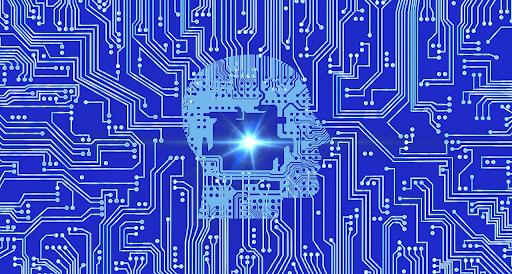Artificial intelligence is set to revolutionize the manufacturing sector by 2025, enhancing supply chain management, predictive maintenance, and process optimization. Advanced algorithms and machine learning will boost efficiency, cut costs, and prevent equipment failures.
Additionally, the evolution of collaborative robots (cobots) will increase factory autonomy and flexibility, supported by deeper integration of IoT and Big Data for real-time monitoring. Despite these advances, challenges such as cybersecurity and the need for employee training remain. This article will delve into how industries can harness AI to refine manufacturing processes in 2025.
Table of Contents
Supply Chain Optimization through AI
One area where AI will have a significant impact is in production and planning. By automating production scheduling, manufacturers will be able to better manage resources, adjust schedules in real-time, and minimize disruptions. AI will continuously analyze data from production lines, enabling quicker and more accurate decision-making.
AI will enhance supply chain operations by predicting demand fluctuations. Smart algorithms will optimize inventory management and reduce waste. Companies will benefit from a more resilient and cost-effective supply chain.
AI-Driven Demand Forecasting
Manufacturers will use AI to analyze market trends and customer behavior. This will allow businesses to anticipate demand shifts with greater accuracy. Strategic decision-making will improve, reducing overproduction risks.
Logistics and Transportation Efficiency
AI-powered logistics systems will optimize routes and manage delivery schedules. Real-time tracking and route planning will reduce delays. This will streamline global supply chain operations for manufacturers.
Increased Automation in Production Lines
The integration of AI into manufacturing will accelerate automation. Smart robots and AI-driven systems will handle repetitive tasks, reducing human intervention. Companies will focus on improving efficiency while lowering operational costs.
Collaborative Robots Enhancing Workforce Productivity
Cobots will work alongside human employees, improving safety and performance. These robots will be capable of learning from human behavior and adapting quickly. Their flexibility will allow manufacturers to scale production efficiently.
AI-Powered Quality Control Systems
Manufacturers will use AI-driven quality control to detect defects in real time. Enhanced machine vision and deep learning algorithms will improve accuracy. This will lead to fewer defective products and higher customer satisfaction.
Predictive Maintenance for Equipment Reliability
Predictive maintenance will become a standard practice in factories. AI systems will monitor machinery in real time, predicting potential failures before they occur. This will minimize downtime and increase productivity.
IoT and AI Combining for Smarter Factories
AI will work alongside IoT devices to collect and analyze vast amounts of data. Real-time monitoring of equipment will enhance efficiency. Factories will use data-driven insights to optimize maintenance schedules.
Reducing Maintenance Costs with AI
Unplanned machine breakdowns can be costly. AI-driven predictive maintenance will significantly cut costs associated with emergency repairs. This will also extend the lifespan of industrial equipment.
Sustainable Manufacturing with AI Solutions
AI will help companies adopt greener practices by minimizing energy consumption. Smart monitoring systems will optimize resource usage, reducing waste. Sustainability will become a key focus for AI-driven factories.
Enhancing Energy Efficiency
Factories will use AI to analyze energy consumption patterns. Automated systems will adjust power usage to reduce waste. Smart grids and AI-driven analytics will improve sustainability efforts.
Waste Reduction through Smart Manufacturing
AI will identify inefficiencies in production lines, reducing material waste. Advanced data analytics will optimize resource allocation. Manufacturers will achieve greater sustainability through AI-driven insights.
The Future of AI in Manufacturing
AI will continue transforming the manufacturing sector. Businesses will rely on AI for automation, quality control, and predictive analytics. Innovation in AI will drive even greater efficiency and productivity.
Overcoming AI Integration Challenges
Businesses must address challenges related to AI adoption, such as high implementation costs. Workforce upskilling will be necessary to manage AI-driven systems effectively. Overcoming these barriers will ensure long-term success.
Embracing AI for Competitive Advantage
Companies that invest in AI will gain a significant competitive edge. AI-driven factories will outperform traditional manufacturing plants in efficiency and cost savings. The future of manufacturing will be shaped by intelligent automation.




